Dress Well, Do Good: How Consumers and Sustainable Brands Make a Difference on Earth Day and Beyond
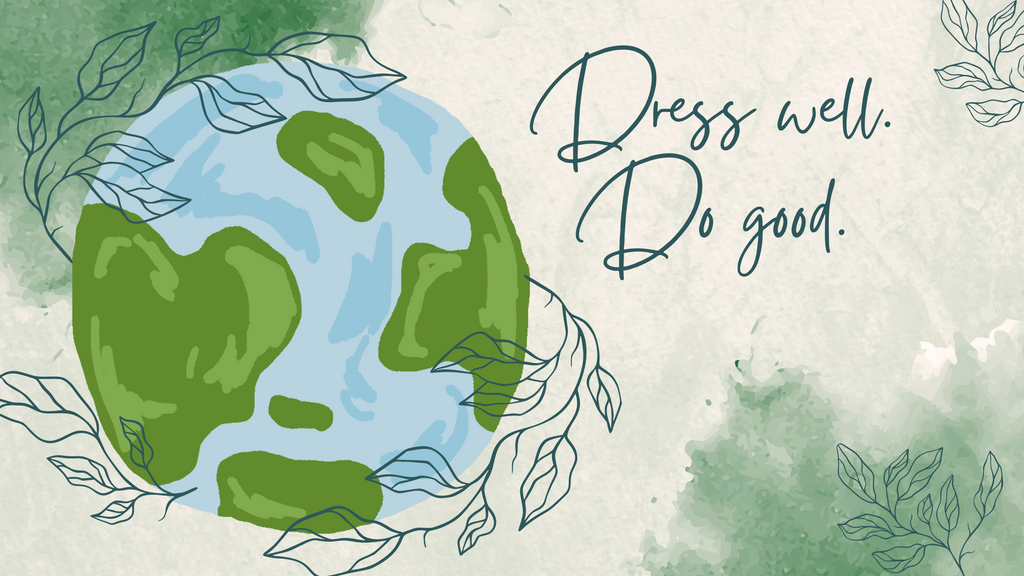
Each year, Earth Day is a reminder of our collective responsibility to protect the planet. This year’s Earth Day theme is “Planet vs. Plastics” and it’s part of a larger campaign to reduce 60% of plastics by 2040. We know that plastics are dangerous to humans, animals, and ecosystems. When plastics break down into microplastics, they release toxic chemicals into our food and water sources and circulate through the air we breathe.
According to EarthDay.org, “plastic production has grown to more than 380 million tons per year. More plastic has been produced in the last ten years than in the entire 20th century, and the industry plans to grow explosively for the indefinite future.” Together, we can drive change by phasing out all single-use plastics, advocating for a strong UN treaty on plastic pollution, and calling for an end to fast fashion.
As a sustainable brand, Passion Lilie is committed to providing ethically made, eco-friendly clothing at an affordable price point. We recognize the detrimental impact of fast fashion on our planet, and we’re determined to make a positive difference. This Earth Day, let's explore the connection between sustainable fashion and how our clothing choices can contribute to a healthier planet.
 The fast fashion model, characterized by cheap, trendy clothing with a short lifespan, is a major contributor to pollution, water waste, and discarded textiles. Consumers turn to fast fashion because it’s cheap and trendy, but this convenience comes at a steep price for the environment and garment workers. The constant turnover of popular styles relies on cheap, synthetic materials that pollute waterways with microplastics shed while washing. During production, fast fashion companies use toxic dyes and textile treatments that seep into our skin and leach into the ecosystem when they’re discarded.
The fast fashion model, characterized by cheap, trendy clothing with a short lifespan, is a major contributor to pollution, water waste, and discarded textiles. Consumers turn to fast fashion because it’s cheap and trendy, but this convenience comes at a steep price for the environment and garment workers. The constant turnover of popular styles relies on cheap, synthetic materials that pollute waterways with microplastics shed while washing. During production, fast fashion companies use toxic dyes and textile treatments that seep into our skin and leach into the ecosystem when they’re discarded.
Fast fashion companies are incentivized to cut costs wherever possible, leading to unfair – and often dangerous – labor practices. Workers, especially women in developing countries, labor in unsafe conditions for unlivable wages to meet the demands of the fashion industry. Women make up about 80% of garment workers around the world. They work more than 60 hours per week for less than the equivalent of one dollar per hour. The factories where they work are often poorly ventilated, lack access to water, and expose workers to toxic chemicals.
Sustainable fashion, on the other hand, prioritizes ethical production practices and environmentally friendly materials. Compared to fast fashion’s harmful practices, sustainable clothing offers a range of environmental benefits.
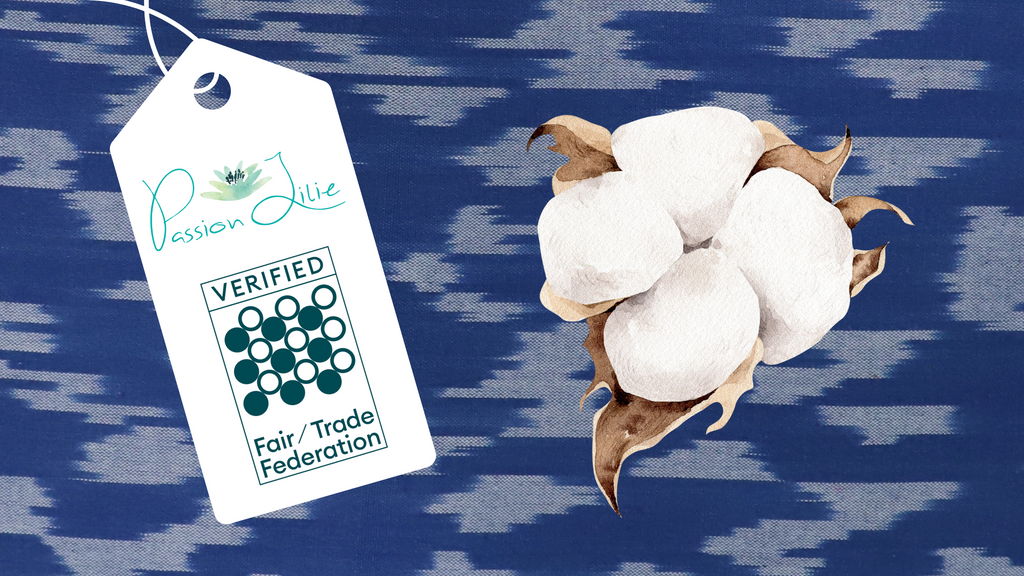 Water Consumption: The fast fashion industry is notorious for its excessive water usage in crop growth, factory operations, and garment dyeing. The fashion industry consumes 10% of the world’s industrial water, with approximately 20% of the world’s wastewater attributed to the dyeing process alone. Sustainable brands like Passion Lilie prioritize organic cotton and natural dyes which significantly reduce water usage throughout the production cycle. To learn more about why we prefer organic cotton over conventional cotton, check out this blog post.
Water Consumption: The fast fashion industry is notorious for its excessive water usage in crop growth, factory operations, and garment dyeing. The fashion industry consumes 10% of the world’s industrial water, with approximately 20% of the world’s wastewater attributed to the dyeing process alone. Sustainable brands like Passion Lilie prioritize organic cotton and natural dyes which significantly reduce water usage throughout the production cycle. To learn more about why we prefer organic cotton over conventional cotton, check out this blog post.
Smaller Carbon Footprint: Between relentless raw material production, manufacturing, and transportation, the fast fashion industry generates a massive amount of greenhouse gasses. On average, the fashion industry releases 10% of global greenhouse emissions each year. By the year 2030, scientists predict greenhouse gas emissions will increase by 50%. As our clothing waste degrades in landfills, it releases methane – a potent greenhouse gas that is 28 times more powerful than carbon dioxide.
Sustainable brands combat carbon emissions by using renewable energy sources, minimizing transportation distances through local production, and opting for eco-friendly materials that require less processing. For example, Passion Lilie’s products are made by hand by artisans in India. They use ancient hand-weaving techniques, hand block printing, hand screen printing, and hand-dyeing processes that reduce energy consumption.
We source materials from areas local to where we produce; purchase carbon offsets to compensate for our shipping from India to the U.S. and our customers; and encourage our customers to purchase carbon offsets at checkout. You can read more about our sustainable practices here.
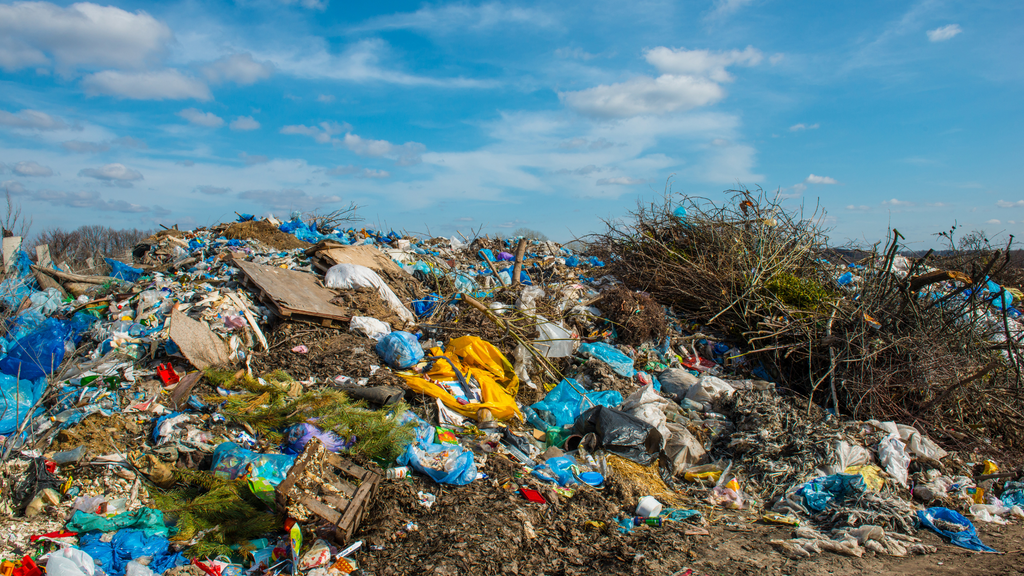 Combating textile waste: The disposable nature of fast fashion encourages consumers to discard clothes after only a few wears, contributing to the 14 million tons of clothing waste generated annually in the US.
Combating textile waste: The disposable nature of fast fashion encourages consumers to discard clothes after only a few wears, contributing to the 14 million tons of clothing waste generated annually in the US.
Sustainable brands promote practices like upcycling and using recycled materials to divert textile waste from landfills. Passion Lilie, for example, is on a mission to become a zero-waste company. We take steps like repurposing the scraps from our clothing into napkins, bags, coasters, headbands, and even jewelry! One of our long-term goals is to offer a takeback program like many other sustainable brands. These initiatives encourage consumers to return unwanted clothing from the brand, which is then diverted from landfills. The returned garments can be given a second life through resale, refurbishment, or recycling.
Passion Lilie products are made from natural fibers and are therefore biodegradable. However, we recommend passing them along to a friend or trusted organization when they no longer serve you. If they’re damaged, turn them into rags or upcycle them into something new!
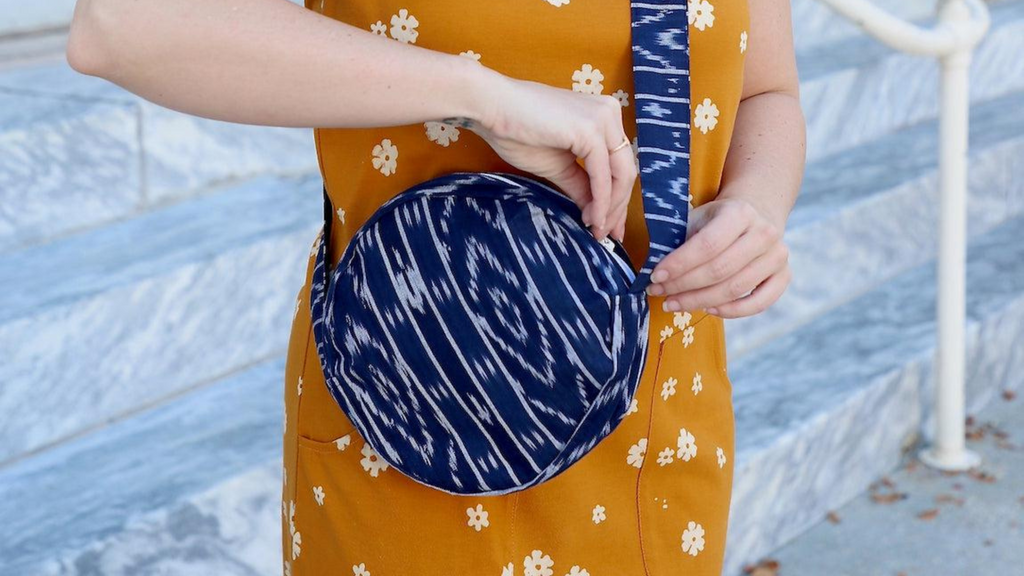 Preserving biodiversity: Many fibers used in fast fashion rely on heavy pesticides and herbicides that seep into the local ecosystem, harming the environment and threatening biodiversity. Community water sources are threatened by the chemicals washed away from crops. Drinking water and food production are directly impacted by toxic chemicals that cannot be broken down or metabolized and therefore remain in water and soil for many years.
Preserving biodiversity: Many fibers used in fast fashion rely on heavy pesticides and herbicides that seep into the local ecosystem, harming the environment and threatening biodiversity. Community water sources are threatened by the chemicals washed away from crops. Drinking water and food production are directly impacted by toxic chemicals that cannot be broken down or metabolized and therefore remain in water and soil for many years.
Sustainable brands like Passion Lilie, which prioritize organic cotton, support soil biodiversity and help mitigate the effects of climate change by preventing harmful chemicals from polluting water sources and other habitats.
 While sustainable brands play a critical role in revolutionizing the fashion industry and mitigating climate change, consumers can also make a difference. Here are some tips for becoming a more sustainable consumer this Earth Day:
While sustainable brands play a critical role in revolutionizing the fashion industry and mitigating climate change, consumers can also make a difference. Here are some tips for becoming a more sustainable consumer this Earth Day:
Shop less, buy better: Prioritize quality over quantity. Invest in classic pieces that will last for years. Passion Lilie and many sustainable brands offer timeless silhouettes in durable fabrics to save your clothes from the landfill and save you money in the long run.
Embrace natural materials: Choose organic cotton, modal, linen, or hemp whenever possible. These materials are often more durable and have a lower environmental footprint.
Love secondhand: Thrift stores and vintage shops are treasure troves for unique finds. They also give pre-loved clothing a new life, reducing textile waste.
Support sustainable brands: Research brands committed to ethical and environmentally conscious practices. Look for certifications like Fair Trade, Global Organic Textile Standard (GOTS), or OEKO-TEX.
Take care of your clothes: Proper washing and mending can significantly extend the lifespan of your garments. 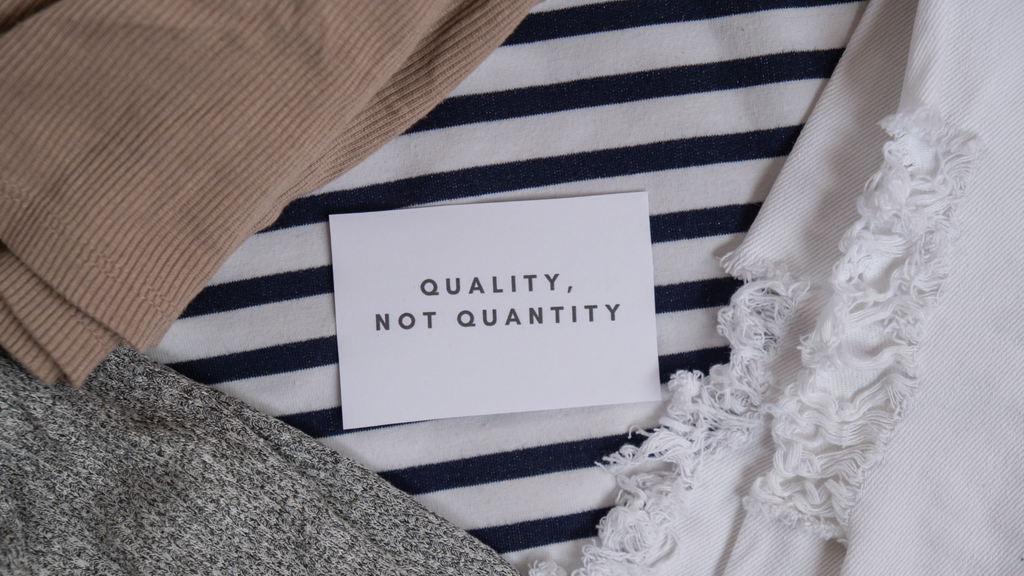 The fashion industry has taken a significant toll on our planet, but if we start to advocate for an eco-friendly clothing industry and become conscious consumers, we can finally slow down climate change. The Passion Lilie team wishes you a very happy Earth Day! Let us know in the comments if you have advice for becoming a more conscious consumer.
The fashion industry has taken a significant toll on our planet, but if we start to advocate for an eco-friendly clothing industry and become conscious consumers, we can finally slow down climate change. The Passion Lilie team wishes you a very happy Earth Day! Let us know in the comments if you have advice for becoming a more conscious consumer.
Sources:
https://psci.princeton.edu/tips/2020/7/20/the-impact-of-fast-fashion-on-the-environment


Leave a comment